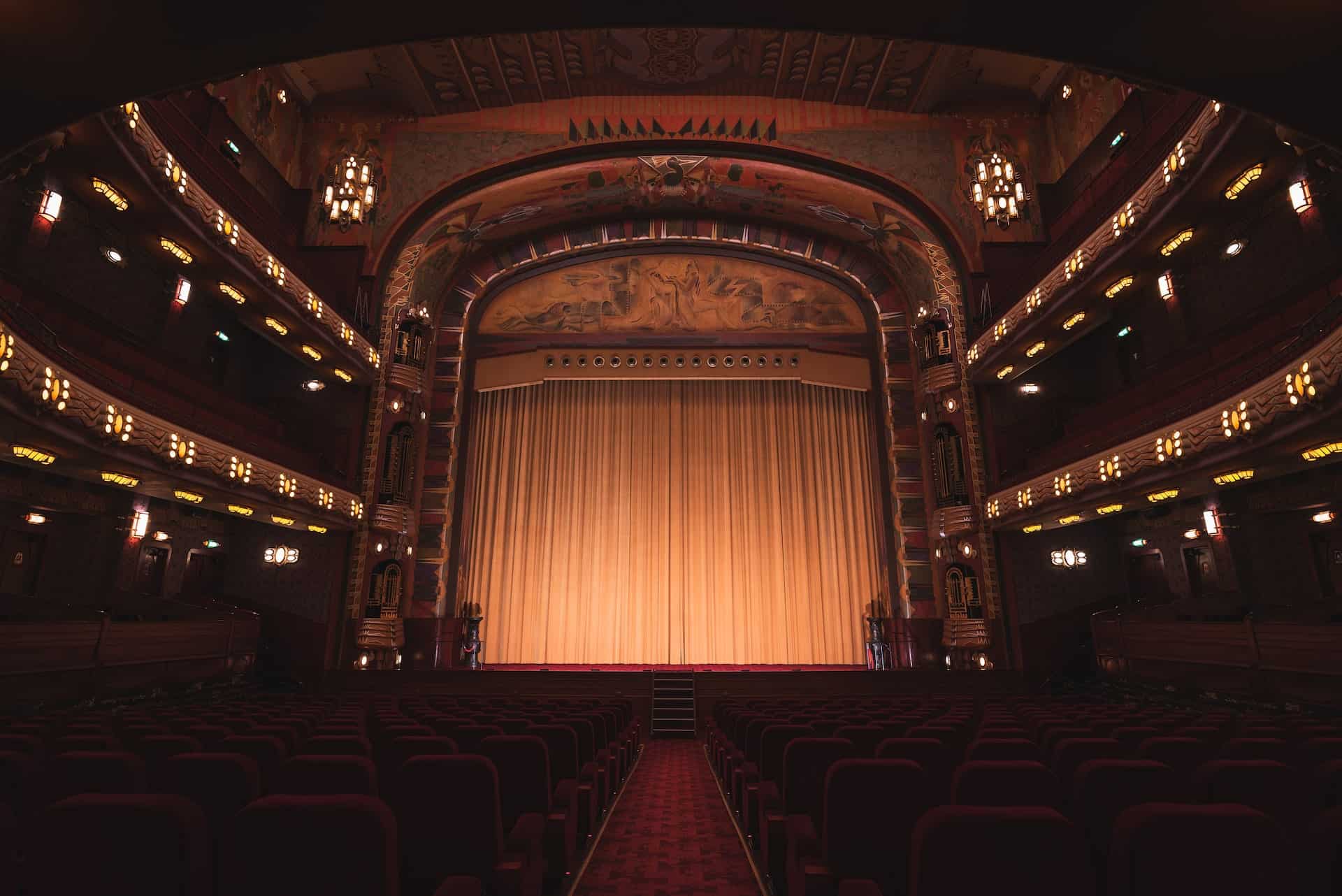
The question of what to wear to the theater or opera, which a few centuries ago fractured the upper classes, remains relevant today, although the answer will be quite different.
A visit to the theater is a double pleasure. First, we will see an interesting or spectacular show, and second, we can demonstrate our best costumes and good taste. Although most experts, both in the field of fashion and theater, say that in recent decades the boundaries of what is considered a theatrical dress code have been firmly blurred, such an outing still requires certain rules of conduct and a particular choice of closet. What should be kept in mind and how to dress to match the event?
For special occasions, a long evening gown, more expensive jewelry and an elegant hairstyle will be appropriate. Invitations to such important and high-profile theatrical events often specify their dress code, e.g. for men – tuxedo, for ladies – evening/cocktail dress. If shocking other guests is not your goal, you should refrain from overly extravagant, defiant and motley outfits.
In case there are no special dress instructions in the invitation, opt for simple elegance in the form of a gown or a formal suit in subdued colors and subtle accessories.
If you visit the theater for a classic opera, ballet or play, you have more styling options. Most theaters do not have a dress code for such events – you can come in casual attire, which does not mean that it should be a tracksuit or jeans with a plain T-shirt. Very formal, evening gowns in such cases are also likely to be out of place. However, you are free to choose from a variety of cocktail dresses, elegant sets and suits, options based on classic style models.
Modern plays and the venues where they are shown can have different atmospheres, so the outfit for an outing must be chosen with the specifics of each one in mind. Sometimes clothes for such events should not only be comfortable – for example, in the case of performances lasting several hours or taking place in venues arranged differently than a traditional theater audience. A smart casual look that combines comfort and practicality with a touch of chic can be a good option. In the search for a balance between aesthetics and comfort, stylists recommend that when choosing clothes, first look at how they look and then evaluate their comfort. The second option is to create ensembles by combining casual clothes with more elegant ones, such as jeans + cashmere sweater or silk blouse, elegant skirt + simple knitted blouse. A comfortable dress will also be a good option.
For men, the matter is much easier. For ordinary daytime performances, you can limit yourself to pants and a simple shirt.
For an evening premiere or opera you definitely need a suit, and for an elite theater a dark tuxedo. The best option, of course, will be a suit in a subdued color – black, navy blue or gray. The shirt should be white or another light shade, and the tie should be uniform and without patterns. The whole outfit will be completed with classic black shoes.
No matter what outfit you choose for going to the theater or opera, remember to keep it neat and non-offensive – after all, you don’t want to offend the actors and other guests.
main photo: unsplash.com/Liam McGarry